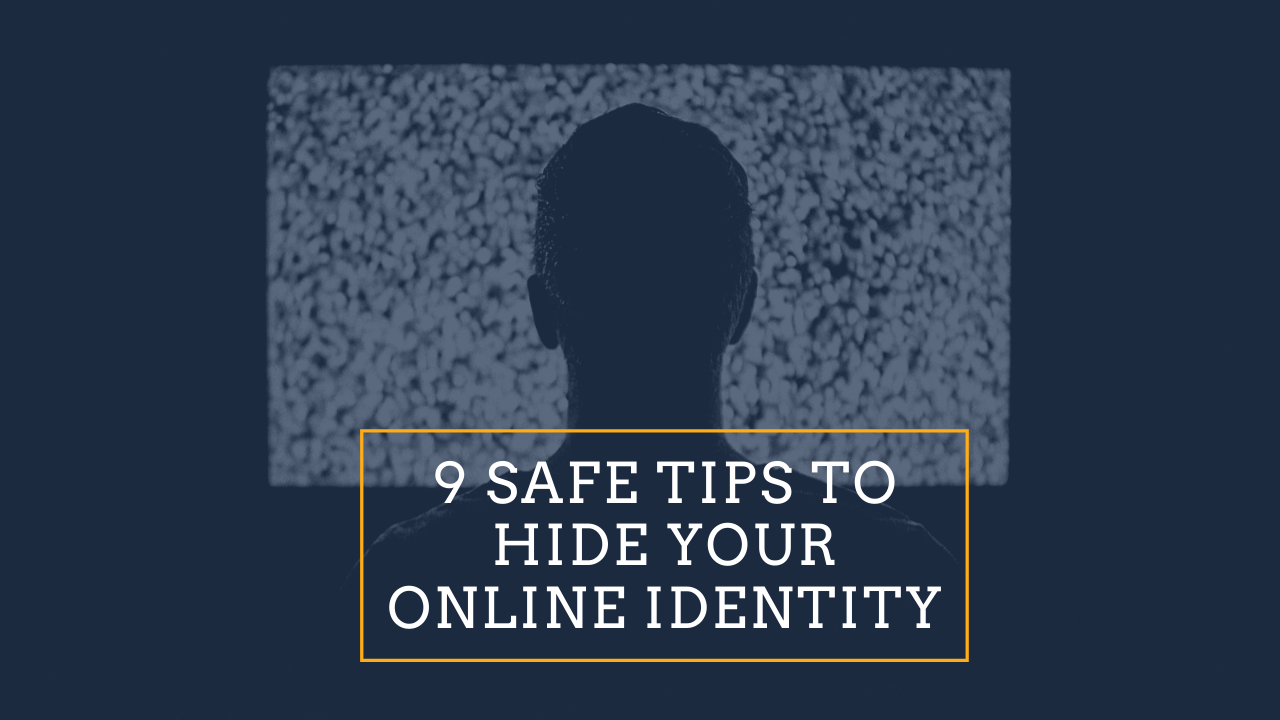Not everyone likes to share their life on the internet. While there are those who post on social media and other platforms every day, some people would rather keep things to themselves.

In fact, they go to great lengths to protect their identity even more. If you would like to remain anonymous on the internet, not using a real name as your profile is not enough. These days, there are a lot of factors that pose a threat to your privacy.
While disappearing from the world wide web entirely could prove to be difficult for most people, there are still plenty of ways to solidify your anonymity. Here are some tips on how to do that.
Tip #1 – Use a Proxy Server
If you are spending a lot of time on the internet, it is natural that you are bound to leave some traces. Now there is a question of whether someone will bother to keep track of your steps. But why not give yourself some guarantees instead of taking that risk?

A proxy server is a good way to start. You can hide an IP address and filter out malicious websites. If you are looking for recommendations for service providers, Proxyway is a good service, and it will help hide your online identity.
Tip #2 – Get a VPN

Virtual private networks are similar to proxies as they allow you to browse with anonymity. On top of that, you can access geo-restricted websites and benefit from various security perks.
Finding a reliable and cheap VPN should not be a problem as there are a lot of different companies offering their services.
Tip #3 – Remove Personal Information
There might be more personal information than you expect. Depending on how and where you spend your time online, there might be traces left in places that you would not expect.
You can even find something like people search engines that are surprisingly good at digging up personal information. Of course, some people are careless and are not doing themselves any favors by leaving bits of personal data here and there.
If you are concerned about what might be out there, spend some time researching the web and make sure that there is nothing that could potentially come back to bite you back later.
Tip #4 – Update Social Media Privacy Settings

Social media is one of those places where you should be able to find most people. Like already mentioned, plenty of social media users like to post personal information on their profiles.
Switching the settings, so the content is available only to the people in a friend list will help, though you should still be more conscious of what you are posting. Even sending something via direct messaging could prove a bad idea.
Tip #5 – Get Rid of Browsing History
Browsing history and cache are something you should remove regularly. It is all good if you are the only person using browsing. But what if someone gets hold of your computer or smartphone?
Tip #6 – Have a Reliable Antivirus
A good anti-malware tool should be one of your priorities. Most people have antivirus running in the background at all times. Having software that detects and eliminates any threats immediately will help you a lot.
There are so many different cybersecurity threats out there. And risking your personal information just because you neglect to install antivirus software is not something that should happen in the first place. Make sure that there is a trustworthy anti-malware installed on your computer.
Tip #7 – Use a Throwaway Email Account
More and more people are creating throwaway accounts. Having an email that has nothing to do with your real name and identity will help to stay private on the internet. If you are signing up for newsletters, registering a game account, or need a new profile on a forum, there is no reason to use your primary email.
Services like Gmail allow you to create as many accounts as you want. So if you need an email for one-time use, why not create a throwaway? It will also prevent more junk mail in your main email account.
Tip #8 – Consider Payment Method Alternatives

There are alternative payment methods that also help with privacy. If you are concerned about your bank information getting in the hands of questionable people, why not consider services like Payoneer or PayPal?
Cryptocurrency has also been around for a while, though it is not something that a lot of places accept as a payment method.
Tip #9 – Be Smart About Your Passwords
Do not get in the habit of using the same password for every profile. Also, when you are thinking of a new password, avoid something simple, like a word and a few numbers or symbols at the end. There are password generators online that you can use to create strong passwords.